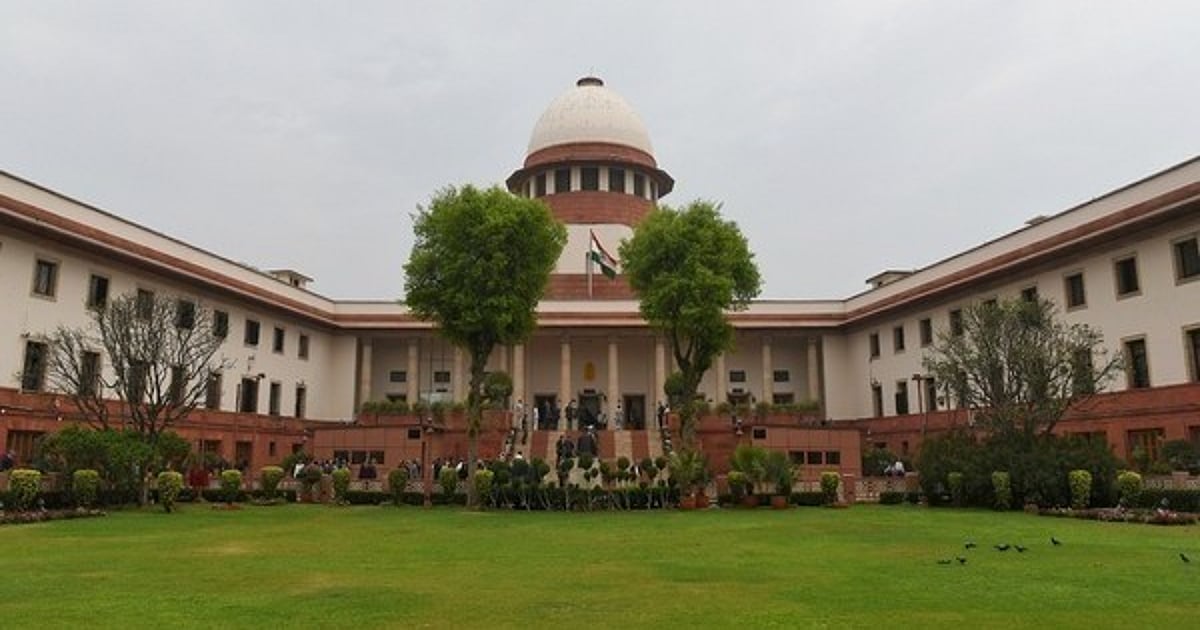NDPS Case: Supreme Court Rulings, Questions of Evidence
Judicial CrackdownPosted by AI on 2025-09-09 00:39:34 | Last Updated by AI on 2025-09-09 08:17:04
Share: Facebook | Twitter | Whatsapp | Linkedin Visits: 0

Recently, the Supreme Court of India acquitted three men accused of smuggling heroin, amidst questions of evidence and the possibility of tampering. The case, registered over a decade ago, has highlighted issues of due process and the need for more robust evidence collection.
The accused, A.S. Rahim, Yasin Bhat, and Sameer Ahmed, were on trial for over 16 years for their alleged involvement in a conspiracy to smuggle over 200 kilograms of heroin from Kashmir to Delhi in 2005. The court's decision emphasized flaws in the investigation and shortcomings in the prosecution's evidence, ultimately ruling that the evidence presented was not sufficient to support a conviction.
While delivering the judgment, the bench of two judges raised questions about the evidence in the case, implying a likelihood of tampering. They cited a 2015 statement by a judge of the Jammu and Kashmir High Court, who observed anomalies and discrepancies in the case files. Moreover, the Supreme Court criticized the failure to provide sufficient explanation for these inconsistencies after 16 years.
This decision has broader implications for drug enforcement and the criminal justice system in India. It underscores the necessity for improved evidence collection and management to ensure fair trials and justice for all.
For more updates on this case and its implications, stay tuned to our channel.
Conclusion:
The acquittal of the three men in the NDPS case underscores the need for critical scrutiny of the evidence and the judicial process. Such cases highlight the importance of due process and underscore the consequences of inadequate evidence collection. The questions raised by the judges indicate a need for focused attention on refining the criminal justice system's processes, ensuring justice is served, and reinforcing the integrity of our legal system.
Search
Categories
- Sports
- Business
- National
- Investments
- History
- Politics
- International
- Science & Technology
- Social Issues
- Disaster Management
- Current Affairs
- Events & Jobs
- మన పార్టీ
- మన నాయకత్వం
- మన విజయాలు
- డౌన్లోడ్స్
- మీడియా వనరులు
- కార్యకర్తలు
- రాజకీయం
- బిజినెస్
- సంపాదకీయం
- నవ్య
- చిత్ర జ్యోతి
- క్రీడలు
- జాతీయం
- తెలంగాణ
- తాజా వార్తలు
- Fast Check
- South
- Gallery
- Sunday Chronicle
- Hyderabad Chronicle
- Technology & Innovation
- Innovations and Initiatives
- బిజినెస్
- North East Skill Center News
- Government Schemes
- Entrepreneurship Support
- Employment Opportunities
- Skill Training Programs
- Education
- Startup Business
- Startup News
- Awards
- Community Services
- Fundraising Events
- Volunteer Services
- Health Initiatives
- సినిమా
- లైఫ్ స్టైల్
- క్రైం
- ట్రెండింగ్
- జాబ్స్
- అంతర్జాతీయo
- Market Buzz
- Awards
- Partners
- Products
- Press Releases
- News
- Departments
- Initiatives
- Resources
- Telangana IT Parks
- Press Releases
- News
- Airport News
- Sports
- Business
- Newtons Laws of Motion
- Karbonn in Business
- Investments in Karbonn
- Company quarterly sales
- Markets
- Auto News
- Industry
- Money
- Advertisements
- Stock target
- Company Updates
- Stock Market
- Company Sales
- Staffing and HR
- Constituency Assembly
- General News
- Srikalahasti Temple
- Bojjala Sudhir Reddy
- Products
- Industries
- Services & Trainings
- Tools & Resources
- Technology Integration
- Drug Seizures & Arrests
- Telangana Narcotics
- Law & Enforcement
- Rehabilitation
- Nationwide Drug Policing
- Nigeria Seizures
- Global Operations
- Drug Awareness
- Drug Enforcement Tech
- NCB Drug Seizures
- Judicial Crackdown
- India's Surveillance Tools
- Cross-Border Links
- Women Safety
- Cyber Crimes
- Drug Abuse
- Traffic & Road Safety
- Community Connect
- Public Safety Alerts
- Citizen Assistance
- Nellore City News
- Politics & Administration
- Events & Festivals
- Agriculture & Rural
- Business & Economy
- Health & Wellness
Recent News
- Water Scare: Corporators Fight Bogus RO Plants as Viral Fevers Rampant
- Himachal Pradesh Achieves 99.3% Literacy Rate
- The Mysterious Absence of Crows During Pitru Paksha 2025
- Complex Wins Sustainability Award, Saves Residents Thousands on Utilities
- Sam Altman: 'Real people have picked up LLM-speak' as AI Twitter, Reddit 'feel fake'
- Alphabet's Valuation Surges Past $2.8 Trillion Following Judicial Victory
- Jewar Airport: New Rule Could Make Properties Near Airport More Expensive And Delay Future Plans
- WWE Hands Over Championship Belts To Top Tennis And Tennis Stars